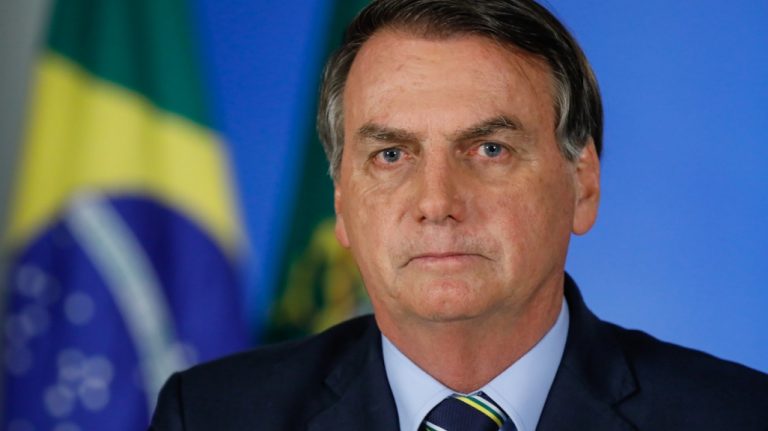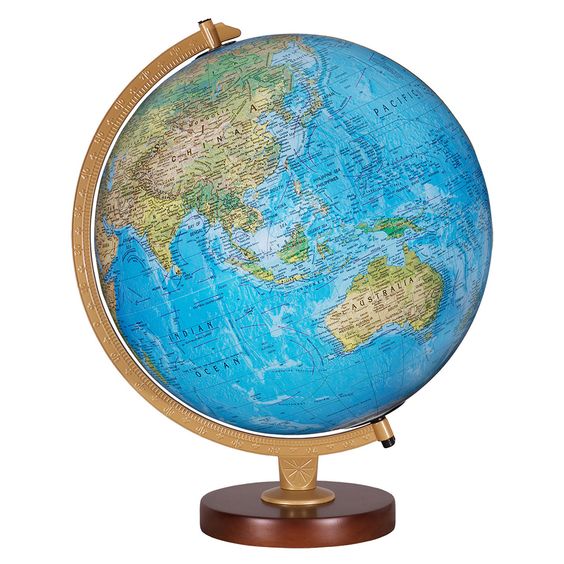
He has not claimed—as expected– a false victory, branded the results “fake” or called on his military friends to stage a coup.
By Tom Arms
Brazil’s Jair Bolsonaro is on the cusp of being an unexpected champion of democracy—albeit an extremely reluctant one.
As of this writing, he is yet to utter that nasty four letter word preceded by the first person pronoun—“I lost”.
Nor has he graciously offered best wishes to his opponent. But, most important of all, he has not claimed—as expected– a false victory, branded the results “fake” or called on his military friends to stage a coup.
He has privately told leading politicians that he accepts that he lost; ordered his staff to work with Lula’s transition team for a peaceful and efficient handover of power and asked his supporters who have been blocking roads to go home.
The Trump of the Tropics has done a thousand times more than his North American political namesake to protect the sanctity of the ballot box which is the foundation stone of any democratic system of government.
Meanwhile, in the United States, some 400 election deniers for state or federal office are on the ballot in the mid-term 8 November elections. Many of these Republicans (yes, they are all Republicans) follow the example set by their leader Donald Trump and say that if they personally lose it will be because of a fraudulent voting system.
Let’s make it clear. Reports of fake American elections are fake news designed to undermine the democratic process so that a group of politicians can illegally grab power.
Furthermore, that the forthcoming mid-term elections are one of the most important in American history. Many of the 400-plus election deniers are standing for state offices which control the electoral machinery. They have made it clear that if elected they see their job as ensuring the election of like-minded candidates.
Donald Trump’s unsubstantiated claims of voter fraud and a “stolen election” have damaged trust in America’s electoral system. A recent Reuters/Ipsos poll showed that 49 percent of Americans think that voter fraud is a problem. The 62 percent of that 49 percent are Republicans and 28 percent Democrats.
However, some hope can be garnered from the poll– 67 percent were adamant that their votes would be correctly counted.
It is clear, as President Joe Biden said, “Democracy is on the ballot” on 8 November.
Or is it? The problem is that most of the voters don’t see it that way. Democracy is a big amorphous philosophical concept which they either take for granted, subject to different interpretations or simply, don’t even think about.
Western democratic systems fail to focus on the big philosophical issues. They are short-termist with politicians highlighting bread and butter issues such as immigration, inflation, cost of living, mortgage costs, rents, housing.
This is understandable. Most of the voters are too concerned with the short-term problems of putting food on the table and a roof over their family’s head to worry about political philosophy or the finer points of law. And our system is designed to represent the concerns of the electorate.
But sound underlying political philosophies are necessary if solutions to everyday problems are to be sustainable. If you believe that representative government is the best system for maintaining our way of life then democracy is on the ballot every time we visit the voting booth.
The electorate, however, will continue, put economy and law and order issues before democracy on the ballot paper. Those are the matters that directly affect them. They implicitly rely on their elected representatives to deal with those more obtuse philosophical and legal subjects as well as the pressing immediate concerns.
The problem is that for that reliance to be successful, the elected representatives must be men and women of honor who are prepared to put the national interest before narrow party or sectional interest. When that is not the case, Democracy is in jeopardy.
 World Review
World Review
- Egypt’s Red Sea resort Sharm el-Sheikh is busily preparing for an invasion of Earth’s political leaders, their extensive entourages and the world’s media. They are not descending on the tourist spot for its sun and sand but for yet another climate change conference. It will be a difficult one. Last year’s Glasgow get-together committed the developed to providing $1 trillion to wean the developing world off fossil fuels. That was before the Ukraine War and its accompanying energy and cost of living crisis. The money that was earmarked for solar and wind farms in Sub-Saharan Africa and South Asia is now being spent on higher oil prices and state of the art weaponry for Ukraine. Even more money will be required to rebuild Ukraine. On top of that, the preachy developed world is shelving many of its green projects in favor of quick fix fossil fuels to replace Russian natural gas. All of which means that it will become increasingly difficult and expensive to stick to the 2015 Paris Agreement to limit global temperature rises to 1.5 degrees centigrade. This is a difficult to swallow reality, but world leaders may have to switch the climate change emphasis from prevention to adaptability while at the same time trying to limit temperature rises as much as possible.
- Putin is retreating. And it is a big retreat. Crucial to his war aims is the strategic city of Kherson. It controls access to Russian-held Crimea by land and by the Dnieper River. The river is also a main source of irrigation and drinking water for the province that Russia annexed in 2014. This week the Russian President publicly announced the evacuation of civilians from Kherson. “It is too dangerous for them to remain,” he said. Military medical units have also evacuated and some fighting units have abandoned their foothold on the river’s west bank. Ukrainian victory in Kherson is not yet a foregone conclusion and some defense experts are predicting fierce house to house fighting in the near future. But the prospects look good for a successful Ukrainian offensive. Putin’s Kherson problems top another bad week for him in Ukraine. It started with him pulling out of the deal to allow much-needed grain-laden Ukrainian ships out of their ports. The pull-out was in response to an alleged British-organized attack on Russian ships in the Black Sea. Within days he was forced to reverse his position under international pressure and the refusal of Turkey and the UN deal brokers to support him. Meanwhile, the Russians continue to bomb electricity and water supplies. Ukrainian teams are working around the clock to keep the country’s electricity grid running, but despite their efforts, 4.5 million Ukrainians are said to be without power as winter approaches. An increasing number of the artillery shells are coming from fellow rogue state North Korea which this week raised tensions by dispatching 180 warplanes to buzz the border area with South Korea.
- China is, of course, crucial to international efforts to apply pressure on Russia and North Korea to behave. This week German Chancellor Olof Scholz secured a diplomatic coup in persuading Chinese President Xi Jinping to publicly condemn “the use or threat of use of nuclear weapons.” The condemnation came in the joint communique at the end of Scholz’s one-day visit to Beijing. Xi refused to allow the communique to mention either Vladimir Putin or Russia by name, but, as Scholz said in the follow-up press conference, the inference was clear. Scholz’s visit was Xi’s first meeting with a G-7 head of government since the pandemic and the recent Chinese Communist Party, all of which indicates the importance that Beijing attaches to relations with Berlin. Germany is also China’s biggest European trading partner. Beijing has large investments in German shipbuilding, ports and electric car manufacturing. Both Scholz and Xi wanted to use the meeting to build on the trading relationship. Scholz is particularly keen to secure more Chinese investment to offset the impact of recession. But closer ties with China does not sit well with all the members of the ruling German coalition. The Greens and the FDP (liberal party) are particularly worried that the growing economic ties will have political consequences that mirror the energy ties with Russia that have resulted in the current problems.
- Bibi is back. Yes, Benjamin Netanyahu is once again prime minister of Israel. This time his coalition of far-right and ultra-orthodox parties has a reasonably stable majority—at least in Israeli terms. Which means that he could avoid another election and stay in the prime minister’s palace on Balfour Street for a few years. But of perhaps greater importance than Bibi’s return is that Itamar Ben-Gvir is in as co-leader of the third largest party in the Knesset and a key figure in the coalition. Two years ago Ben-Gvir’s ultra-right, ultra-orthodox Jewish Strength Party had one parliamentary seat. It now has 14 out of 120. Ben-Gvir himself has been twice convicted for inciting racial hatred and his rallies are marked by the crowd chanting: “Death to the Arabs.” As a key figure in Netanyahu’s coalition, Ben-Gvir, is expected to claim a major ministerial portolio. That is likely to be Minister for Public Security. This means he will be responsible for maintaining law and order inside Israeli borders, which, as the government maintains, includes the hotly disputed and occupied West Bank territories. Netanyahu said in his victory speech that his election demonstrates that “the people want government that projects power, not weakness.”
- Weakness is pretty much what emerged from the Arab League heads of government Summit this week. The league was founded in 1945 at the start of the era of decolonization. Its initial stated aim was to secure the independence and sovereignty of Arab states. It succeeded and then went on to address Arab-wide issues across a wide spectrum with a heavy focus on the Palestinian cause. Its record, has at best, been spotty. Its meeting this week in Algiers verged on failure. Speaker after speaker emphasized the need for joint action to deal with a wide and pressing range of problems—Climate change which is turning increasing sections of North Africa into desert; the recognition of Israel by key Arab states which undermines the traditional fight for Palestinian rights; the continuing war in Yemen; the Syrian civil war, the War in Ukraine which is affecting grain supplies upon which much of the Arab world is dependent; the energy crisis; inflation; relations with the US and Russia; Iran’s nuclear program; famine and drought and, of course, the return to power of Israeli nemesis Benjamin Netanyahu. Everyone acknowledged the pressing need for concerted action on all the above points. But no one could agree on what that action should be.
_________________
 Tom Arms is foreign editor of Liberal Democrat Voice and author of the recently published “America Made in Britain.”
Tom Arms is foreign editor of Liberal Democrat Voice and author of the recently published “America Made in Britain.”